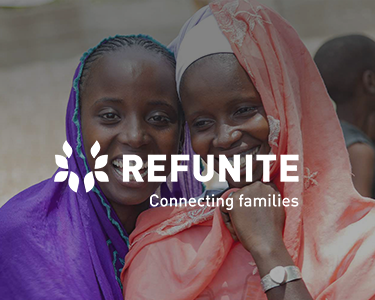CHARSADDA, Pakistan, August 7 (UNHCR) – Zahir Shah, a toy peddler in his late 40’s from a village near Charsadda in northwest Pakistan, lost everything he owned in the floods that swept over his home area in the past week, including the pushcart filled with toys that is his only source of income. Yet he considers himself lucky.
He is alive and, after an ordeal in which he was forced to carry his two young sons on his back to higher ground, his family is together as well.
Janat Bibi, 40, also feels herself fortunate.She escaped with her five children when neighbours began firing shots in the air to warn people of the flood. But she lost touch with her husband. For three days she was unable to reach him because the little piece of paper on which she had written his mobile phone number disappeared in the tide. “I only want him to come back safely, my children miss their father,” she says.
Bibi and Shah are among some 12 million people who have now been affected by the worst monsoon floods to hit Pakistan in more than 80 years. UNHCR staff are on the ground and working hard to reach those most in need of shelter and other supplies but the destruction already wreaked on roads and bridges by the flood waters is making their job -and that of all relief agencies-especially difficult. With more rains forecast, the fear of disease and hunger is spreading.
As Zahir Shah awaits more help from the outside world, he recalls his escape: “At first when it rained- my kids really enjoyed it because the weather had been so hot,” he told me during a visit to the area with a UNHCR team. But then it kept raining. It rained hard for hours and hours until water started flowing in the streets.
News of the first floods came from a nearby mosque. Zahir Shah decided to leave his house and take his family to higher ground. Leaving behind his pushcart with toys that he sells in different villages was a particulalry hard decision but he saw no way to bring it along.
“When we came out of the house, the water was up to my knees. We had only walked for ten minutes and it reached my abdomen. I had to carry my children on my back,” he recalls. Zahir Shah reached his friend’s house first and rested there for a time. But as more and more people arrived he had to move out, finding space with others in a nearby school.
Not far away in the same building, Janat Bibi nods her head. She escaped with her family around the same time. The first thing she remembers is being woken from her sleep by the sound of gunfire.
“At first I did not know what was happening,” she recalls. “But when I got out of bed and stepped on the ground, I realized that I was standing in water. People were firing in the air to alert others. “
“I woke up my five children. When I left the house, the water was up to my knees.” Janat Bibi’s husband, a driver, was not at home at the time. “It was chaos and everyone was running to save their lives,” she recalls. So she found another relative to help carry her children.
Janat Bibi had no contact with her husband for three days. When she finally contacted him through a relative, he was stranded in the Swat Valley. She does not know when they might be reunited.
Zahir Shah and Janat Bibi are living in a government school building and are surviving on rice which is provided to them by the local community.
Zahir Shah seems to be lost when he thinks about his future. He will have to vacate the school building once it reopens after the summer break. He has no money to rebuild his house, rent a room or restart his work. Zahir Shah visited his house the other day; all that is left is rubble.
UNHCR is targetting 350,000 of the neediest for help and is calling on donor countries and the public for urgent contributions to bring assistance to people like Zahir Shah and Janat Bibi.
Source: UNHCR
By Rabia Ali, Charsadda, Pakistan


